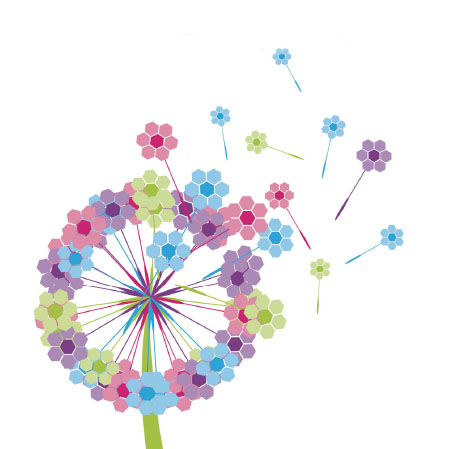Read our coverage of the coronavirus pandemic here.
Kindness in a crisis
Posted on 21 Apr 2020 Categories: Blog, Coronavirus
by Ben Thurman
COVID-19 and Wellbeing Blogs: The Carnegie UK Trust works to improve personal, community and societal wellbeing. Many of the issues that we work on, and the partners and groups who we work with, are deeply affected by the impact of the COVID-19 crisis. Over the coming weeks we’ll be sharing a series of blogs with reflections and questions across these different aspects of wellbeing. We are interested in learning from others, so please get in touch to share your reflections on how communities, networks and organisations are responding.
As the COVID-19 crisis escalates, and people come together in response, many conversations focus on capturing what is happening in communities and organisations. It feels very early to be doing this; and yet, beyond the critical emergency response, we are witnessing and learning so much about the importance social connection and relationships.
The Carnegie UK Trust’s work on kindness talks about creating space and ‘permission’ to be kind. While ‘social distancing’ measures mean we are cut off from physical spaces, the crisis has nevertheless triggered a ’mass re-neighbouring’, allowing us to reach out and connect with people in our communities in ways that previously felt risky or uncomfortable.
As charities and community groups rush to find ways to enable social connection without face-to-face contact, we often see that people are doing it already, in ways that are organic and authentic, and perhaps don’t need to be over-engineered – the stairwell WhatsApp groups, the offers of help stuck to lampposts, the communal singing and clapping, the pictures and messages in windows – all of which build trust and solidarity in our neighbourhoods.
Amid the stockpiling and fraud, and given the fear and anxiety we are all feeling, it is crucial that we recognise and celebrate these stories: both to share ideas for enabling social connection in a time of physical disconnection, but perhaps more importantly to sustain a ‘voice of optimism’. We will need these new-found relationships and network of community support to get us through this initial crisis and beyond, and we must find ways to hold onto the ‘permission’ that COVID-19 has provided.
At the same time, not everyone will experience this moment in the same way. The lock down will have a disproportionate impact on those who are most isolated and excluded, those that don’t have the bonds of friendship and community that so many of us are relying on, and the skills, access and support to build effective, positive relationships through digital technology. We know that the mental health burden will not be evenly distributed, but shouldered by those who were already finding day-to-day life difficult.
With this in mind, it is vital that efforts to provide support also focus on inclusion: that they don’t address purely the transactional, practical needs of medication and food, but also the human need for kindness and relationships. While many communities and organisations are seeking to do this, there is a sense that the crisis will tell us much about the unevenness of our social infrastructure, and highlight the places where we need to think carefully about rebuilding and redesigning a landscape that encourages kindness and community cohesion.
Alongside the re-neighbouring and community response, there has been a fundamental shift in the way that we interact with organisations and services. The nature of emergency demands that we focus on what is essential, and we are seeing growing use of tech-enabled care, video GP consultations, online food deliveries – even the way we observe the two metre distance in supermarket queues radically changes our interaction with staff and other customers.
It has become very apparent who the ‘key workers’ in society really are. But we must also ensure that the necessary short-term changes brought about by COVID-19 don’t lead to more transactional, clinical services in normal times – and that we recognise that these key workers and essential services are at the vanguard of a more relational society.
Right now, we are seeing elected representatives speak the language of kindness, commissioners ‘turn off’ the targets and indicators that organisations are measured by, public services place more trust and autonomy in the hands of key workers, and communities come together to support the work of the state. So, when we do emerge from the initial crisis and enter a phase of rehabilitation, there will be choice and opportunity: to go back to what we were doing before, or rebuild drawing on what we have learnt about what matters most.
The way we respond in the months ahead is important, because we could so easily forget what is happening right now, and fail to articulate a different future in the rush to return to ‘business as usual’. The stories we tell at the moment might just help us to answer some of those questions for the future: how do we put kindness at the heart of public services, and place greater value on those that carry out this work? How do we reframe the interrelationship between community and state? How do we support and maintain a social infrastructure that allows all of our communities to thrive?
Ben Thurman is policy and development officer at Carnegie UK Trust.
This was originally posted on the Carnegie UK blog on 2nd April 2020.
Posted on 21 Apr 2020 Categories: Blog, Coronavirus

